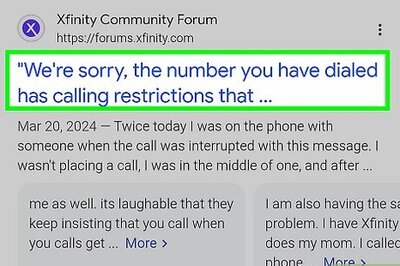
views
Tech companies have been tripping over themselves to try and prove they are the most dedicated when it comes to safeguarding our data. That is, till the next big data breach is revealed. Yes, we are looking at you, Facebook. And we see you from the corner of our eye, Google. At the Worldwide Developer Conference (WWDC) 2019, Apple fired another privacy laden salvo at Facebook and Google. This time, targeting the single sign-on (SSO) option.
You would have often encountered the ‘Sign in with Google’ and ‘Sign in with Facebook’ options on various apps and websites. The convenience of these mean that you can tap on any of these options, authenticate with your account credentials and log in to access the functionality of the app or the website. Now, Apple has unleased its own SSO option—Sign in with Apple. But what is the difference, you ask. The answer is simple. Apple’s solution gives next to no data to the app or website developers and can mask your credentials if you wish.
So, when you sign in with the Facebook or Google SSO, a significant amount of your account information is shared with the app or website you are logging in to. This means your name, email address, date of birth, social media profile and perhaps more information is shared. With the Apple SSO, that will not be the case. This SSO method will not share your email address. At the most, app developers can request for your email address. If you share, then that is your call. If you decide not to, Apple will create a random email address and share that with the developer. This randomly generated email address will be linked with your original iCloud ID, and the developer will have no way to trace it back to you or find out your original account details.
Remember, Apple doesn’t need ad-funding in the same way as Facebook and Google does. In fact, it doesn’t need any ad-revenue at all. Google and Facebook have often collected data from SSO activity, which gave them a significant amount of user data that wouldn’t have been possible otherwise. In the end, Apple doesn’t have to make money from the system. And that perhaps puts it in the strongest position to be a “privacy provider” that you may so desperately crave for, in this leaky online world.


















Comments
0 comment